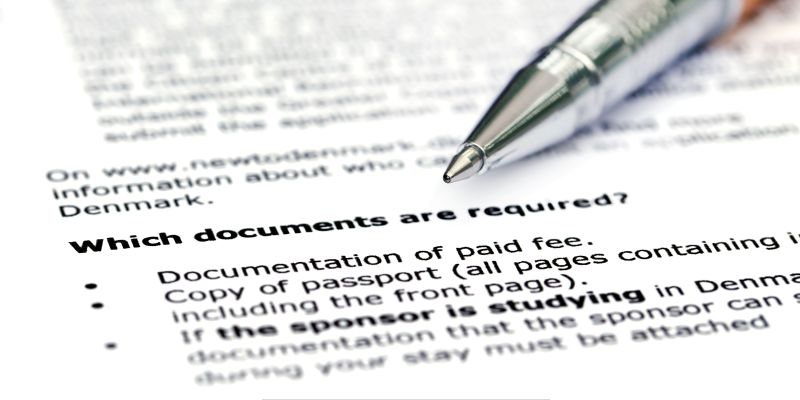Visa requirements are a crucial aspect of international travel, serving as a gateway for individuals seeking to enter foreign countries for various purposes. These requirements can vary significantly from one nation to another, influenced by factors such as diplomatic relations, security concerns, and immigration policies. Understanding the intricacies of visa requirements is essential for travelers, as it can determine the success of their journey and the experiences they will have abroad.
For many, the visa application process can be daunting, filled with paperwork, regulations, and deadlines. However, it is also an opportunity for travelers to familiarize themselves with the laws and customs of their destination. By navigating the visa landscape effectively, individuals can ensure a smoother transition into their host country, allowing them to focus on their travel experiences rather than bureaucratic hurdles.
Key Takeaways
- Visa requirements vary by country and purpose of travel, so it’s important to research and understand the specific requirements for your destination.
- Common types of visas include tourist, business, student, and work visas, each with its own set of requirements and restrictions.
- The visa application process typically involves filling out an application form, providing supporting documents, and attending an interview at the consulate or embassy.
- Some travelers may be exempt from obtaining a visa for certain countries based on their nationality, purpose of visit, or length of stay.
- Visa validity and duration can vary widely, so it’s important to check the expiration date and any restrictions on multiple entries.
Types of Visas
Visas come in various forms, each tailored to specific purposes and durations of stay. The most common types include tourist visas, business visas, student visas, and work visas. Tourist visas are typically issued for short stays, allowing travelers to explore a country’s attractions without engaging in any form of employment.
These visas often have strict limitations on the activities that can be undertaken during the visit, emphasizing leisure and tourism. Business visas, on the other hand, cater to individuals traveling for professional reasons. This type of visa allows for activities such as attending conferences, meetings, or negotiating contracts.
In contrast, student visas are designed for those who wish to pursue education in a foreign country. These visas often require proof of enrollment in an accredited institution and may have specific conditions regarding work eligibility. Work visas are more complex, as they usually necessitate sponsorship from an employer and may involve a lengthy application process to ensure compliance with labor laws.
Visa Application Process

The visa application process can be intricate and varies widely depending on the country and type of visa being sought. Generally, it begins with gathering the necessary documentation, which may include a valid passport, photographs, proof of financial stability, and an invitation letter if applicable. Each country has its own set of requirements, so applicants must carefully review the guidelines provided by the consulate or embassy of the destination country.
Once the documentation is prepared, applicants typically need to fill out a visa application form, which may be available online or in paper format. After submitting the application along with the required fees, applicants may be required to attend an interview at the consulate or embassy. This interview serves as an opportunity for officials to assess the applicant’s intentions and eligibility for the visa.
The entire process can take anywhere from a few days to several weeks, depending on the country’s processing times and the applicant’s circumstances.
Visa Exemptions
| Country | Visa Exemption |
|---|---|
| United States | Visa exemption for 39 countries |
| United Kingdom | Visa exemption for 111 countries |
| Germany | Visa exemption for 188 countries |
| Japan | Visa exemption for 191 countries |
Visa exemptions are provisions that allow travelers from certain countries to enter another country without obtaining a visa for short stays. These exemptions are often based on bilateral agreements between nations and can significantly simplify travel for citizens of participating countries. For instance, many European nations have agreements that allow citizens to travel freely within the Schengen Area without needing a visa.
However, it is essential for travelers to verify their eligibility for visa exemptions before planning their trips. Some countries may impose restrictions based on the purpose of travel or the length of stay. Additionally, even if a visa is not required, travelers must still comply with entry requirements such as having a valid passport and proof of onward travel.
Understanding these nuances can help travelers avoid unexpected complications upon arrival.
Visa Validity and Duration
Visa validity refers to the period during which a visa holder is permitted to enter a country, while duration pertains to how long they can stay once admitted. These two aspects are critical for travelers to understand, as overstaying a visa can lead to severe penalties, including fines or bans on future travel. Each type of visa has its own validity period and duration of stay, which can range from a few days to several years.
For example, tourist visas may allow stays of up to 90 days within a six-month period, while work visas could be valid for multiple years but may require renewal or sponsorship from an employer. It is vital for travelers to keep track of these dates and plan their itineraries accordingly. Failure to adhere to visa conditions can result in complications that may affect future travel plans or even lead to legal repercussions.
Visa Fees and Costs

Visa fees are an integral part of the application process and can vary widely depending on the type of visa and the country being visited. These fees are typically non-refundable and must be paid at the time of application submission. In addition to standard application fees, there may be additional costs associated with processing times, expedited services, or biometric data collection.
Travelers should also consider other potential expenses related to obtaining a visa. These may include costs for obtaining necessary documents such as medical examinations or police clearance certificates. It is advisable for applicants to budget accordingly and research all potential fees associated with their specific visa type to avoid any financial surprises during the application process.
Common Visa Issues and Problems
Despite careful planning and preparation, travelers often encounter common issues during the visa application process. One frequent problem is incomplete or incorrect documentation, which can lead to delays or outright denials of applications. It is crucial for applicants to double-check all forms and supporting documents before submission to ensure compliance with requirements.
Another common issue arises from misunderstandings regarding visa conditions. Travelers may inadvertently overstay their visas due to a lack of awareness about validity periods or extensions. This can result in significant consequences, including fines or restrictions on future travel.
To mitigate these risks, individuals should stay informed about their visa status and seek assistance if they encounter any uncertainties during their travels.
Tips for Smooth Visa Processing
To facilitate a smooth visa processing experience, travelers should adopt several best practices throughout their application journey. First and foremost, thorough research is essential; understanding the specific requirements for the desired visa type can save time and prevent errors. Utilizing official government websites or consulting with immigration experts can provide valuable insights into the process.
Additionally, applicants should ensure that all documentation is complete and accurate before submission. Keeping copies of all submitted materials can also be beneficial in case any issues arise later in the process. Finally, allowing ample time for processing is crucial; applying well in advance of planned travel dates can alleviate stress and provide flexibility in case of unexpected delays.
In conclusion, navigating visa requirements is an essential part of international travel that requires careful attention and preparation. By understanding the types of visas available, familiarizing themselves with the application process, and being aware of potential issues, travelers can enhance their chances of a successful journey abroad. With proper planning and adherence to guidelines, individuals can focus on enjoying their travels rather than worrying about bureaucratic obstacles.
If you are planning a trip abroad, it is important to be aware of the visa requirements for your destination. Understanding the visa process can save you time and stress when traveling. For more information on visa requirements, check out this informative article on how solitaire games improve cognitive skills and boost productivity. This article provides valuable insights into the benefits of playing solitaire games and how they can enhance your mental abilities.
FAQs
What are visa requirements?
Visa requirements refer to the conditions set by a country that determine whether a foreign national is eligible to enter and stay in that country for a specific period of time.
Why do countries have visa requirements?
Countries have visa requirements to regulate the entry of foreign nationals, ensure national security, and manage immigration. Visa requirements also help countries to control the number of people entering their borders and to prevent illegal immigration.
What are the common types of visas?
Common types of visas include tourist visas, work visas, student visas, and business visas. Each type of visa has specific requirements and restrictions based on the purpose of the visit.
How can I find out the visa requirements for a specific country?
You can find out the visa requirements for a specific country by visiting the official website of the country’s embassy or consulate, or by contacting them directly. Many countries also provide information about visa requirements on their official government websites.
What documents are typically required for a visa application?
The documents required for a visa application may include a valid passport, a completed visa application form, passport-sized photographs, proof of financial means, travel itinerary, and a letter of invitation (if applicable). Additional documents may be required depending on the type of visa and the country’s specific requirements.
Are there any countries that allow visa-free travel for certain passport holders?
Yes, there are countries that have visa-free or visa-on-arrival arrangements for certain passport holders. These arrangements allow travelers to enter the country without a visa or to obtain a visa upon arrival at the port of entry. The specific countries and passport holders eligible for visa-free travel vary depending on bilateral agreements and international relations.









